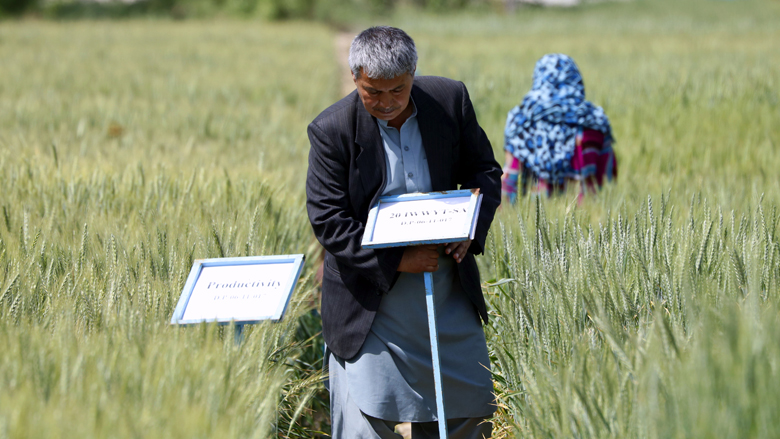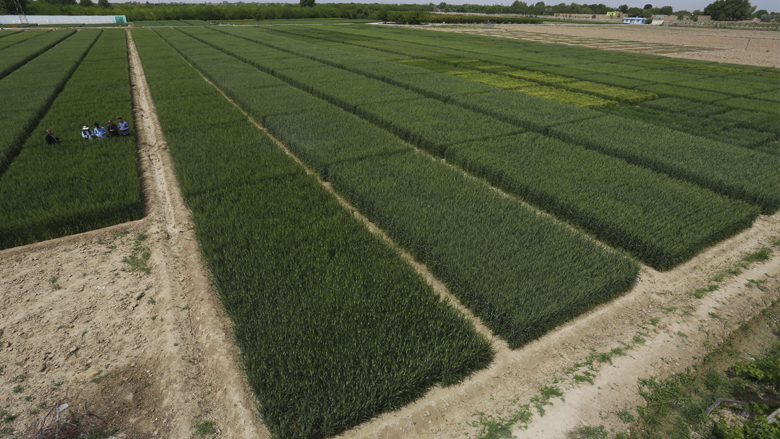DEHDADI DISTRICT, Balkh Province – It is a hot sunny day in Balkh province. Staff at a local farm are working in its fields, while Khan supervises them.
Khan oversees an inter-ministerial farm managed by the Ministry of Agriculture, Irrigation and Livestock (MAIL), which produces foundation seeds, primarily for wheat. The foundation seeds produced at the farm, fall under one of the country’s six Improved Seed Enterprises (ISEs) which plays an important role in the production of high-yield and disease- and pest-resistant crops adapted to the local climate. Foundation seeds are used to produce certified seeds that can eventually be used by farmers to grow healthy crops.
Although the farm has been running since 1987, the many years of war destroyed the farm, leading to very little or no output. “The farmland was ruined during the war, but it has slowly become better since 2003,” says Shams who oversees the farm.
With support from MAIL’s Afghanistan Agricultural Inputs Project (AAIP), Shams says that MAIL is working to rehabilitate the farm while improving its production capacity. “We have the human resources to run the farm, but not technical and financial support,” he says. “We appreciate AAIP providing us the technical and financial support.” He says the project is generating results at the farm, which “is functioning well now and we hope it will become even better.”
Since AAIP support began in 2013, conditions at the farm have improved significantly. from animals and people. “Our crops are not being trampled on anymore as the land is protected from any disruptions,” says Khan. “We hope this means we will have better yields in the future.” More recent activities undertaken by AAIP have included buying modern farm machinery for the facility.



